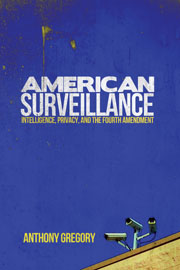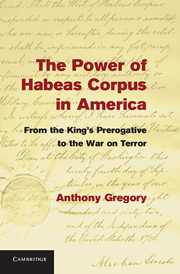Does the First Amendment cover public school teachers and students on Facebook? The Internet age has brought a new spin to old civil liberties debates.
Three recent cases underscore the complexities. The Missouri State Teachers Association is suing to challenge the “Amy Hestir Student Protection Act,” a state law restricting public teachers and students from interacting on social media. The law, named after a student who was molested by a teacher, is said to violate the teachers’ freedom of speech and association. One practical consideration: teachers can easily abuse their authority over students without the Internet. If Facebook makes the abuse more likely, it probably also makes it easier to detect.
Meanwhile, officials in Lake County, Florida, have reassigned a teacher for airing controversial views on his Facebook. Jerry Buell condemned same-sex marriage, thundering that “God will not be mocked.” District policy penalizes employees for “[p]osting as a citizen about a non-job related matter of public concern . . . and making comments that negatively affect the district’s effectiveness.”
Also this month, a federal judge ruled that an Indiana school was wrong to punish students for posting suggestive photos taken at a slumber party. The school code prohibiting displays that “discredit or dishonor . . . yourself or your school” was too vague and a violation of the First Amendment, the court decided, intoning that “[t]he case poses timely questions about the limits school officials can place on out-of-school speech by students in the information age where Twitter, Facebook, MySpace, texts, and the like rule the day.”
Americans take different sides on these controversies, but each poses distinct questions. Moreover, these issues are politicized not because of social media but because of government-run schools themselves.
A private school can legitimately set standards for behavior outside class. It could forbid teachers and students from being online friends, ban teachers from voicing religious or political opinions online, and penalize students for posting crude images. Its ultimate recourse would be firing the teacher or dismissing the student.
Public schools complicate the picture. Mere association between teachers and students should be legal. But insofar as the Missouri law sets rules for school district policy, there may be no perfect answer on First Amendment grounds. Most parents, who must finance the system, expect some guidelines on school personnel. Any policy is bound to alienate some people.
The Florida case is not a simple free speech issue, either, especially since the teacher does not face criminal penalties. Real censorship involves fines or jail time, not simply losing a job or being reassigned. Civil libertarians could still object to a tax-funded institution enforcing speech codes on Facebook. But is there no limit to what public teachers can spew online, while representing the public? This is only such a difficult issue for a public school. There is no constitutional problem when a private school reassigns a teacher.
Matters are perhaps different concerning students. They and their parents can choose private schools at great expense, but taxes and attendance laws make them captive customers of public schools. One could argue that public schools can legitimately set standards for outside conduct among their employees, but students and their families are forced to patronize the system. Americans were understandably outraged last year to learn that a Pennsylvania school was using laptop cameras to spy on students at home. Whereas public teachers don’t have a “right” to a job without restrictions, students are compelled to attend and should have an expectation of privacy at home. Their parents, not their schools, should determine any discipline over slumber party hijinks.
All these cases pose difficult questions and involve the troubling specter of speech police reaching into students and teachers’ lives. Yet the complications all arise due to public schooling. Similarly, whether schools teach evolution or intelligent design, birth control or abstinence, Keynesian or free-market economics, is impossible always to resolve so long as the general public is taxed and supposedly served by a monopoly school system. This is an argument for moving away from a school monopoly supported through taxes and forced attendance. In the meantime, all who value civil society should be wary of any speech codes affecting students and teachers in their time off, while recognizing that teachers working under an employment contract’s terms could be reprimanded or fired for their off-site behavior without it necessarily qualifying as outright censorship precluded by the First Amendment.








